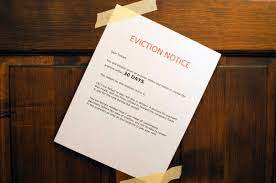A legal measure known as an eviction hardship extension gives renters who are having financial issues or have violated their lease more time to work out a solution and stay out of homelessness by temporarily stopping the eviction process. It provides a break and an opportunity to reorganize for renters who are struggling with money problems or breaking their contracts.
Tenants who are aware of the process and keep lines of communication open with their landlords may be able to prevent an eviction lawsuit and obtain some much-needed time and respite. Although residential evictions are the main reason for eviction hardship extensions, commercial evictions may also benefit from the information provided below.
The process of requesting an eviction hardship extension has numerous benefits. Tenants are given the chance to:
- Postpone the eviction process
- Give them more time to resolve their financial issues or look for other housing possibilities.
- Assist tenants in avoiding the anxiety brought on by eviction notices
- Avoid being homeless
- Encourage stability in housing.
Eviction Hardship Extension: Definition and Purposes
A hardship stay of eviction, sometimes referred to as an eviction hardship extension, is a court order that halts the eviction process indefinitely. The legal procedure is provided with relief by allowing renters to stay in the property until alternative lodgings are found.
Nevertheless, a hardship extension for eviction is not an excuse to avoid paying past-due rent. Tenants must demonstrate financial hardship and pay unpaid rent to the landlord or court for an extension. This can be the lack of suitable replacement accommodation or the effect of the household’s eviction on the children. Acquiring knowledge about current eviction regulations might also facilitate the eviction hardship procedure.
The extension’s primary goal is to:
- Allow tenants experiencing financial difficulties or breaking lease terms more time to pay rent arrears.
- Obtain substitute housing arrangements.
- Reduce the likelihood of being evicted right away.
Benefits of Hardship Extension for Eviction for Tenants
An eviction hardship extension gives tenants additional time to resolve their financial position or landlord-tenant conflict.
- Aids in preventing homelessness
- Encourages stable housing
- Lowers the likelihood of protracted periods of homelessness
- Helps renters find secure, reasonably priced accommodation.
- Getting an extension for eviction hardship can assist reduce psychological suffering by:
- Lowering the anxiety, panic, and confusion that an eviction notification frequently causes
- Supplying the impression of stability needed for mental wellness
- Preventing mental health issues from getting worse
- Reduction in hospitalization rates
- Lowering the chance of suicide.
Qualifications for an Extension of Eviction Hardship
Tenants are only eligible for an eviction hardship extension if they can provide proof of their financial hardship. The inability to pay rent or other financial responsibilities is referred to as financial hardship.
Experiencing Financial Hardship
Financial hardship is described as the inability to pay rent or other bills because of stressors like losing one’s work, having large medical bills, or experiencing other unanticipated financial challenges in the context of an eviction hardship extension.
Tenants may be required to present proof of financial difficulty in the form of medical expenses, lost wages, or other unanticipated events that affect their capacity to pay rent. Due to their ability to show the tenant’s financial commitments and constraints, monthly expenses and debts can also be used as proof of financial hardship in eviction cases.
When demonstrating financial hardship for an eviction hardship extension, income level is crucial since it shows that the person or family’s restricted resources prevent them from being able to pay their rent.
Working Out a Payment Schedule with Your Landlord
When facing financial difficulties, it’s critical to communicate openly and honestly with landlords. Renters ought to consider the possibility of working out a repayment schedule that entails spreading out their payments over a longer time frame and in smaller, more manageable amounts.
There are various procedures involved in preparing a repayment plan proposal for a landlord. Among them are:
- Stating unequivocally that a reasonable rent repayment schedule will be established.
- Stating the entire amount of overdue rent.
- Laying out a payment schedule that specifies the quantity and timing of installments.
- Dividing the outstanding rent amount into affordable portions.
- Putting the proposition in written form.
Throughout this process, it is essential to communicate the financial status proactively and honestly.
How to Get an Extension for Hardship Eviction
Before Requesting an Extension of Time
- Vacate Judgment: Find out if you can dismiss or vacate a default judgment.
- Stay on Property: Until a new judgment is rendered, you are permitted to stay on the property if the judgment is vacated.
Making a Motion to Extend the Time
- Get the forms ready: Fill out a Notice of Motion and a Motion to Extend Stay of Eviction Order.
- File Motion: You can either file your motion electronically or in person at the court, and copies will be sent to the landlord and sheriff.
- Effect of Filing: If your motion is filed within 30 days of the eviction order, it will postpone eviction while the judge considers it.
Court Appearance
- Notification of Court Date: Depending on the mode of filing (e-filing or paper filing).
- Court Appearance: Be ready for the hearing. Explain your request for an extension of time or a new court date and make your argument.
- Self-Representation: Comply with all court regulations and guidelines; bring all required paperwork and case-related information (such as the case number and names of parties involved).
- In court: Arrive on time, show civility, check in with the staff, and make your case when called upon.
Filing a Request in Court
During an eviction proceeding, submitting a request for an eviction hardship extension to the court involves several processes. To apply for emergency rental assistance, tenants must first ask the judge or court clerk about the possibility of delaying the eviction order. After that, they have to file a court motion to halt or postpone the eviction.
Tenants may be asked to provide documentation, such as pay stubs, medical bills, and unemployment records, with their request for an eviction hardship extension. Depending on the requirements of the program or jurisdiction, the precise documents required to prove hardship may include proof of income, expenses, loss of employment or reduced hours, and sometimes medical verification.
Protections and Legal Rights During the Hardship Extension Period of Eviction
During the term of eviction hardship extension, tenants are granted a range of rights and safeguards. Among these are safeguards against self-help evictions, which are situations in which landlords try to kick away tenants without following the law by changing locks or turning off utilities.
Furthermore, tenants are still responsible for paying rent even after receiving an eviction hardship extension. When handling eviction matters, people should also take the rights of the landlord into account.
Tenant Rights for the Duration of the Extension
Tenants have certain fundamental rights during the hardship extended period for eviction, including:
- An extension of the appropriate eviction notice period
- The choice to ask for a hardship stay to delay eviction
- The provision of additional rental assistance time and the possibility to assert financial hardship as a legal defense.
- The potential to work out a grace period for landlord rent payments
During the duration of the extension, tenants are additionally shielded from unwarranted eviction. Tenants feel more secure during this difficult time since laws protecting them from unfair eviction procedures are in existence.
Protections Against Retaliation by Landlords
The term “landlord retaliation” refers to a variety of harsh actions also used by landlords in reaction to tenants asserting their legal rights. Retaliation in the context of an eviction hardship extension can take the form of attempting to impede the proceedings or putting in place unjust stipulations.
Fortunately, a combination of federal rules and legislation in most states protects renters from landlord retaliation during an eviction hardship extension. Landlords are not allowed to penalize renters for exercising their legal rights, such as requesting an eviction hardship extension, under this framework of protection.
Programs for Alternative Help for Renters at Risk of Eviction
Tenants who are facing eviction in addition to applying for an eviction hardship extension can look into several aid programs, such as:
- LIHEAP
- The Program for Housing Choice Vouchers
- Services provided by the Office of Fair Housing and Equal Opportunity at HUD
- Opportunity
- Agencies for Community Action
- State-Sanctioned Housing Finance Organizations
FAQs
What does Florida’s hardship stay on eviction mean?
Tenants may request that the court “stay” (halt) a summary eviction and give them an additional ten days to vacate the property by filing a Motion to Hold (Delay) Order for Summary Eviction. (JCRCP 110; NRS 70.010(2).) After receiving an eviction notice, a tenant has up to one year to file a motion to remain. (JCRCP 110.)
What is a New Jersey hardship stay of eviction?
A hardship stay is an appeal to the court for emergency relief that, provided you pay off all of your debt and can keep making payments until the expiration date, might halt your eviction for as long as six months.
How long does a Florida eviction remain on your record?
Tenant screening reports may contain information on evictions for seven years, but it will not show up on your credit record. Ask the landlord or leasing firm for the name of the tenant screening company they use if you are in the process of applying for a lease.
In Summary
Finally, tenants can move through the eviction procedure with confidence and guarantee the protection of their rights by obtaining legal counsel and assistance from skilled attorneys. Additionally, It can help with evictions by providing options for mediation, rental aid, and legal advice. It supports renters in making rent payments on time, settling disputes with landlords, and also working to keep them from being evicted.



